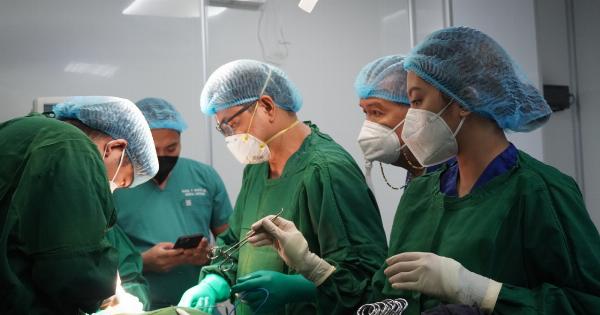Post-operative ileus (POI) is a common and distressing complication that leads to delayed recovery, increased costs, and prolonged hospital stays.
POI, defined as a functional gastrointestinal disorder characterized by delayed gastric emptying and bowel motility after surgery, occurs in up to 40% of patients undergoing abdominal surgery. The etiology of POI is multifactorial, and includes anesthesia, opioids, inflammation, and surgery-related stress. There is currently no definitive treatment for POI, so prevention remains the best option.
The traditional approach to preventing POI involves the use of opioid antagonists, such as naloxone and methylnaltrexone. However, opioid antagonists are associated with adverse effects such as tachycardia, hypertension, and nausea.
Moreover, they can be ineffective in preventing POI in certain subtypes of patients. Hence, there is a need for a new approach to preventing POI with minimal risk.
1. Preoperative Education and Optimization
One potential new approach to preventing POI is through preoperative education and optimization. Patients who undergo abdominal surgery are often malnourished, dehydrated, and have decreased exercise capacity.
By preoperatively optimizing their nutrition, fluid status, and exercise capacity, we can potentially reduce the incidence of POI. Furthermore, educating patients about the risks, benefits, and expectations of surgery can help reduce the psychological stress associated with surgery, which in turn can lead to a reduction in POI.
Several studies have shown a reduction in the incidence of POI with preoperative optimization and education programs.
2. Enhanced Recovery after Surgery (ERAS) Protocols
ERAS protocols focus on multimodal analgesia, early mobilization, and early feeding. By using non-opioid analgesics, such as acetaminophen and nonsteroidal anti-inflammatory drugs (NSAIDs), instead of opioids, we can reduce the incidence of POI.
Moreover, early mobilization, which involves getting patients out of bed and walking as soon as possible after surgery, can promote bowel motility and reduce the incidence of POI. Early feeding, even in the form of a clear liquid diet, has also been shown to reduce the duration of POI. ERAS protocols have been associated with a significant reduction in POI and a faster recovery after surgery.
3. Neuromodulation
Neuromodulation involves the use of electrical or magnetic stimulation to alter neural activity. In the case of POI, neuromodulation can be used to stimulate the nerves that control bowel motility.
Transcutaneous electrical nerve stimulation (TENS) and percutaneous electrical nerve stimulation (PENS) are two forms of neuromodulation that have been shown to reduce the duration of POI. TENS involves the placement of small electrodes on the skin over the abdomen and application of a low-frequency electrical current. PENS involves the insertion of small needles into the skin near the abdomen and application of electrical stimulation.
Neuromodulation is a promising new approach to preventing POI with minimal risk.
4. Probiotics
Probiotics are live microorganisms that confer health benefits when consumed in adequate amounts. Probiotics have been shown to modulate gut motility, secretion, and immune function.
Several studies have evaluated the use of probiotics in preventing POI, and have shown a reduction in the duration of POI. The exact mechanism by which probiotics exert their effects on bowel motility is unclear, but it is thought to involve the production of short-chain fatty acids and modulation of gut microbiota.
5. Pharmacologic Agents
Several pharmacologic agents have been evaluated for their effectiveness in preventing POI. Prokinetic agents, such as metoclopramide and erythromycin, stimulate bowel motility and have been shown to reduce the duration of POI.
Ghrelin agonists, such as ghrelin and its analogs, promote gastrointestinal motility and have also been shown to reduce the duration of POI. However, most pharmacologic agents are associated with adverse effects such as nausea, vomiting, diarrhea, and QT prolongation.
Conclusion
POI is a common and distressing complication that leads to delayed recovery, increased costs, and prolonged hospital stays. Prevention remains the best option, and a new approach to preventing POI with minimal risk is needed.
Preoperative education and optimization, ERAS protocols, neuromodulation, probiotics, and pharmacologic agents are all potential new approaches to preventing POI. However, all these approaches require further evaluation in large clinical trials before they can be recommended for routine practice.






























